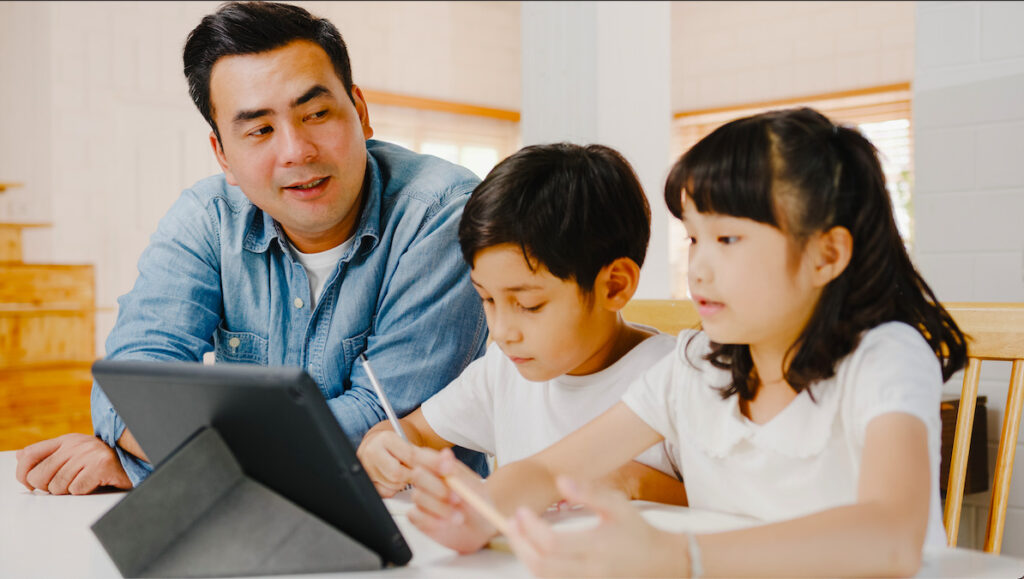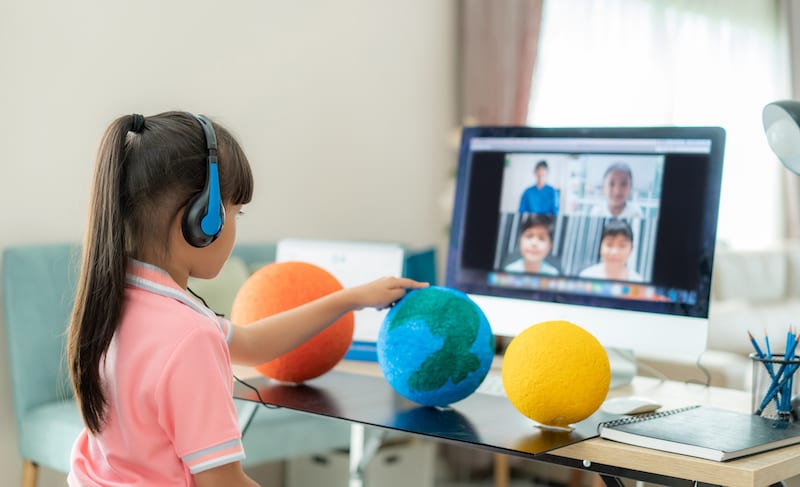If we were to summarise the years 2020 and 2021 in one word, that word would be unpredictable. More so for parents who have had to deal with the added stress of school closures, adapting their child’s entire learning experience.

We can’t be sure about schools because they open and suddenly close. It is vital to stay prepared for future interruptions to the school calendar.Learning at home can provide your children with additional skills that they may not develop in school.
So here are a few suggestions for you:
Our brains need stimulation and respond well to new environments, challenges, and experiences. Hobbies allow children to explore their talents and to find out what they enjoy. If they have limited experience, it can be incredibly hard for them to choose a career path later. Art, photography, reading, gaming, and coding are some great examples of creative hobbies to try at home!

Parents always complain that school never prepares their children for real life. Children also feel the same way; they learn to pass exams but not how to live independently. There are many skills that parents can teach their children at home such as sewing, money management, simple DIY tasks, or essential digital learning. Digital learning is of particular importance to young people today. However, it is one area schools fail to deliver 21st-century skills to students.

Technological advancement continues to accelerate; it infiltrates all areas of life. Love it or hate it, it is a reality that young people need to develop their digital skills no matter what career path they choose to follow. Algorithmics is helping young people to get skills for their future. Try our online programming courses NOW!
Apps, videos, and online learning platforms are all accessible from the comfort of your own home. Look for active learning experiences that make the most of games and animations so that your children stay engaged. For example, The global platform of Algorithmics integrates game-based activities and animated graphics. Also, our teacher leads every session to ensure your child is challenged at their level. Home learning experiences should be positive and rewarding. There is nothing worse than passive activities with zero engagement.

Without a doubt, one of the best parts of traditional school environments is the friendships you make along the way! Try to keep your kids connected by organizing group calls and virtual activities. Social skills are important for a child’s learning development. That’s why our students learn in small groups. It allows your child to make friends who have similar interests.

We hope these ideas will help you to bring positive learning experiences into your home long after lockdown has ended!
Traditionally, students gained knowledge and skill sets related to specific fields to help them achieve career success. Nowadays, the rapid pace of economic and social change means schools have to prepare students for careers, technologies and problems that haven’t even been created yet.
Today’s students must develop transferable skills that they can use in a wide variety of settings in order to succeed. The 21st century skills are ones that are necessary for working effectively with others and solving problems in a global economy, according to experts.
Students are allowed to drive their own learning is critical to ensuring lifelong education.
It is now clear what 21st Century skills are and why employers want them in new hires.
So how can we help students to apply and improve them, especially in school? Listed below are a number of approaches that Algorithmics teachers constantly use with students.
01
Provide students with opportunities to work on collaborative projects where each student is responsible for a particular aspect of a larger group project.
02
Identify possible issues and problems by presenting students with real-world scenarios.
03
Allow students to lead their own learning, which will guarantee life-long learning.
04
Encourage students to develop criteria to evaluate and improve their own projects as well as have them come up with as many as ideas before selecting most extremely helpful one.